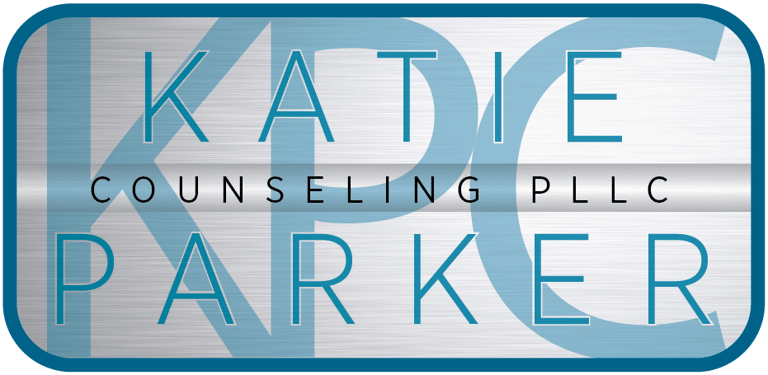Understanding Different Mental Health Professions & Licenses
Navigating the different mental health professions can be confusing. What are the differences between a counselor, psychologist, psychiatrist, therapist, life coach, etc. & which is right for me?
NAVIGATING MENTAL HEALTH SERVICES
Katie Parker MA, LPC- Counseling Michigan
2/21/20245 min read


Aren't they all the same? NO!
When it comes to seeking help for mental health issues such as depression, anxiety, relationship issues, or stressful life transitions, it can be confusing to navigate the various titles and professions in the field of mental health. The terminology used can often be overwhelming, leaving many wondering which professional they should turn to for support. Let's break down the differences between counselors, psychiatrists, psychologists, psychotherapists, therapists, social workers, and life coaches, as well as explain the distinctions between full license, partial license, and limited license.
Therapist
The term "therapist" is a general term used to describe any mental health professional who provides therapy. This can include counselors, psychologists, social workers, or other professionals who offer talk therapy to support individuals in addressing their mental health concerns. It is important to note that the specific qualifications and training of a therapist may vary depending on their profession.
Psychotherapist
A psychotherapist is a broad term that encompasses various mental health professionals who provide therapy to individuals, couples, or groups. Psychotherapists may include psychologists, counselors, social workers, or psychiatrists who engage in talk therapy to help clients overcome emotional and psychological challenges. The specific training and qualifications of a psychotherapist can vary depending on their professional background.
Counselor
A counselor is a mental health professional who is trained to work with individuals, families, and groups in treating mental health issues, behaviors, and emotional problems. They have master's or doctorate degree in counseling and are licensed in their respective state. They are trained in diagnosing, assessing and treating mental health disorders. They provide psychotherapeutic intervention, i.e. therapy. Counselors may specialize in various areas such as marriage and family counseling, substance abuse, or career counseling. They can work in various clinical settings including hospitals, clinics, schools, doctors' offices and private practice, etc.
Psychologist
A psychologist is a mental health professional who holds a master's or doctoral degree in psychology. They are trained in the assessment, diagnosis, and treatment of mental health disorders. Psychologists often specialize in specific areas such as clinical psychology, evaluation and research, or neuropsychology. They can provide therapy and may also conduct psychological testing to assess cognitive abilities, personality traits, or emotional functioning. You will find psychologists working in various settings including government agencies, hospitals, clinics, schools, and private practice, etc.
Social Worker
A social worker is a mental health professional who helps individuals, families, and communities address social and emotional issues. They are trained to provide diagnosis, assessment and treatment in mental health disorders. They specialize in advocacy, and support services to clients. They are required to have a master's or doctoral degree in social work and are licensed by their state. Social workers often work in a variety of settings such as private practice, hospitals, schools, or community organizations, and may specialize in areas such as child welfare, mental health, or gerontology.
A licensed professional counselor, psychologist or social worker are the three disciplines which typically provide "therapy" and call themselves "therapists."
Psychiatrist
A psychiatrist is a medical doctor who is trained specially in the field of mental health and is licensed to prescribe medication. They often work in conjunction with other mental health professionals, such as counselors or social workers, to provide comprehensive care. Psychiatrists are trained in both psychotherapy and pharmacotherapy and provide medication management. Psychiatric mental health nurse practitioners or (PMHNP) similarly to psychiatrists can also diagnose, conduct therapy, and prescribe medications for patients who have psychiatric disorders.
Only some Psychiatrists chose to provide medication management AND therapy.
Life Coach
A life coach is a professional who helps individuals set and achieve personal or professional goals. While not specifically trained in mental health counseling, life coaches provide guidance, motivation, and support to help clients improve their lives. Life coaches are not required to hold a degree license or have any specific training or certification. Life coaches may focus on areas such as career development, relationships, or personal growth, and often utilize coaching techniques and strategies to empower their clients.
A life coach does not provide therapy, rather they focus on goals.
Differences in License Types
When it comes to mental health professionals, you may come across terms such as full license, partial license, or limited license. These terms refer to the level of licensure and the scope of practice for each professional. Here's a breakdown of what each license type means:
Full License
A full license indicates that the mental health professional has met all the requirements set by their licensing board and is authorized to practice independently. Professionals with a full license have completed the necessary education, training, licensing examinations and supervised experience to provide comprehensive mental health services to clients.
Partial License
A partial license, also known as a provisional or temporary license, indicates that the mental health professional is in the process of completing the requirements for full licensure. Professionals with a partial license have typically completed their education and training but may still be gaining supervised experience or completing additional exams or coursework.
Limited License
A limited license is granted to mental health professionals who have met some, but not all, of the requirements for full licensure. These professionals may have completed their education and training, but still need to gain additional supervised experience or fulfill other specific requirements such as advancing their degree before obtaining a full license. Limited license holders may have certain restrictions on their practice, such as the types of clients they can see or the services they can provide.
It's important to note that the specific titles and license types can vary depending on the country or state in which the mental health professional practices. It's always a good idea to research the regulations and requirements in your specific area to ensure you are seeking help from a qualified and licensed professional.
Choosing the Right Professional
Now that we have a better understanding of the different mental health professions and license types, how do you choose the right professional for your needs? Here are a few factors to consider:
1. Type of Issue
Consider the specific issue or challenge you are facing. If you are seeking medication management, a psychiatrist or psychiatric mental health nurse practitioner may be the most appropriate choice. If you are looking for therapy to address emotional or psychological concerns a counselor, psychologist, or social worker may be a good fit.
2. Specialization
Some mental health professionals specialize in certain areas, such as trauma, addiction, or relationship issues. If you have a specific concern or need, it can be helpful to seek out a professional who has expertise in that particular area. Ask questions such as, "How long have you been practicing?" "What experience do you have with this issue?" "What are your qualifications and what approach will you take?"
3. Personal Connection
The therapeutic relationship is such an important factor in the effectiveness of therapy. It's essential to find a professional with whom you feel comfortable and can establish a trusting relationship. Consider scheduling an initial consultation or phone call to get a sense of the therapist's approach and personality.
4. Cost and Insurance Coverage
Therapy services can range in price, so it's important to consider the cost and whether the professional accepts your insurance or offers private pay. It's also worth checking with your insurance provider to understand what mental health services are covered under your plan. An effective and experienced therapist is worth the investment, and an inexperienced and ineffective therapist is not worth the perceived savings. (You get what you pay for.)
The Right Fit
Finding the right mental health professional may take some time and exploration. Don't hesitate to reach out to multiple professionals or ask for recommendations from trusted sources such as friends, family, or healthcare providers. The field of mental health can be complex, with various titles and licenses that may seem confusing at first. Understanding the differences between counselors, psychiatrists, psychologists, psychotherapists, therapists, social workers, and life coaches can help you make an informed decision about the type of professional you want to see for your specific needs. Additionally, being aware of the distinctions between full license, partial license, and limited license can help you understand the level of expertise and scope of practice of each professional. Remember, seeking help for your mental health is a courageous step, and finding the right professional to support you on your journey is crucial.


